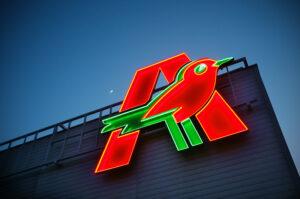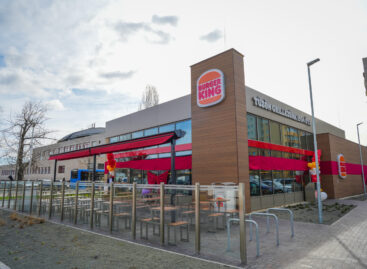Auchan innovates with a kilo-sized shopping cart – changing strategies based on sustainability and customer needs
Auchan took a new direction in its second-hand clothing concept in 2025: instead of individually wrapped and labeled pieces, it now operates as a classic thrift store in several of its Hungarian hypermarkets. Although the chain continues to offer products in the spirit of sustainability, experts say the change may have been justified by increasing financial difficulties.
Transformation of the “New Life by Auchan” concept
 The chain launched the “New Life by Auchan” program back in 2022, the aim of which was to offer customers quality-controlled, disinfected, and then individually packaged second-hand clothing. According to the communication at the time, the product range was wide-ranging: baby and children’s clothes, women’s and men’s clothing were also available, from 160 different brands. The model differed from classic thrift stores, as the products were carefully selected and prepared for sale.
The chain launched the “New Life by Auchan” program back in 2022, the aim of which was to offer customers quality-controlled, disinfected, and then individually packaged second-hand clothing. According to the communication at the time, the product range was wide-ranging: baby and children’s clothes, women’s and men’s clothing were also available, from 160 different brands. The model differed from classic thrift stores, as the products were carefully selected and prepared for sale.
However, in 2025, Auchan switched to the traditional kilo system. Customers can now select the pieces that suit them in bulk, from large piles, which can significantly reduce prices. There are more and more reports on social media that the new model is also available in various units of the department store chain, and that one kilogram of used clothes is being offered for 3,890 forints.
Economic factors and market effects
Auchan’s original goal was to promote sustainable fashion and reduce overconsumption, and this change in concept does not necessarily override this. However, in the current economic situation, the decision was probably also influenced by the fact that more and more families are struggling with financial difficulties. While previously a used piece of clothing ranged between 600 and 3,300 forints, pricing per kilo can mean significant savings for customers.
Related news
40 secure jobs, sustainable solutions – new BURGER KING® in Csepel
🎧 Hallgasd a cikket: Lejátszás Szünet Folytatás Leállítás Nyelv: Auto…
Read more >Carrefour and Coca-Cola are focusing on refillable glass bottles
🎧 Hallgasd a cikket: Lejátszás Szünet Folytatás Leállítás Nyelv: Auto…
Read more >A surprising trend on Women’s Day: something else, more personal, is almost essential in addition to flowers
🎧 Hallgasd a cikket: Lejátszás Szünet Folytatás Leállítás Nyelv: Auto…
Read more >Related news
(HU) Átadták a SIRHA Budapest 2026 Innovációs Termékverseny díjait
🎧 Hallgasd a cikket: Lejátszás Szünet Folytatás Leállítás Nyelv: Auto…
Read more >How does the forint exchange rate affect consumer prices?
🎧 Hallgasd a cikket: Lejátszás Szünet Folytatás Leállítás Nyelv: Auto…
Read more >HELL CITY has arrived, led by Michele Morrone
🎧 Hallgasd a cikket: Lejátszás Szünet Folytatás Leállítás Nyelv: Auto…
Read more >








